Originally aspiring to be an investigator, Snizhana Kutrakova found herself in journalism by fate. With 23 years in the field, she spent a decade on the talk show Ukraine Speaking. She led the Loud Case program, focusing on criminal investigations, and headed the social project In a Human Way a year before the war. Her journey started at Donetsk Regional Radio, where she met her future husband, journalist Sergiy Kutrakov. They could have marked 25 years in the profession, but the 2014 war altered their paths – he became a soldier, and she became his unwavering support. Their story, shared for the NUJU, embodies resilience and dedication.
The war began for her well before February 24, 2022. In 2014, the Russian forces entered her hometown of Donetsk, even though Snizhana Kutrakova had been living in Kyiv with her family for nearly nine years. Despite the distance, she still felt deep pain and shame for her homeland.
“My husband called and said he was okay, but in a second, he could be killed – that’s war, and he kept reminding me about it.”
Watching the events on TV, with journalist parents and friends sharing stories, she shed tears and thought, “Donetsk, don’t go down this path.” The shame was overwhelming. The presence of imported troublemakers and actors waving Russian flags led to people from Donetsk being viewed negatively across Ukraine. This truth isn’t an exaggeration. Despite this, the people of Donetsk remained loyal to Ukraine; it was traitors who manipulated local authorities and even the Verkhovna Rada in pursuit of a “Russian world.”
Snizhana’s husband was among the first on Maidan. Starting as a journalist covering the Revolution of Dignity, he left journalism to volunteer to defend his homeland.
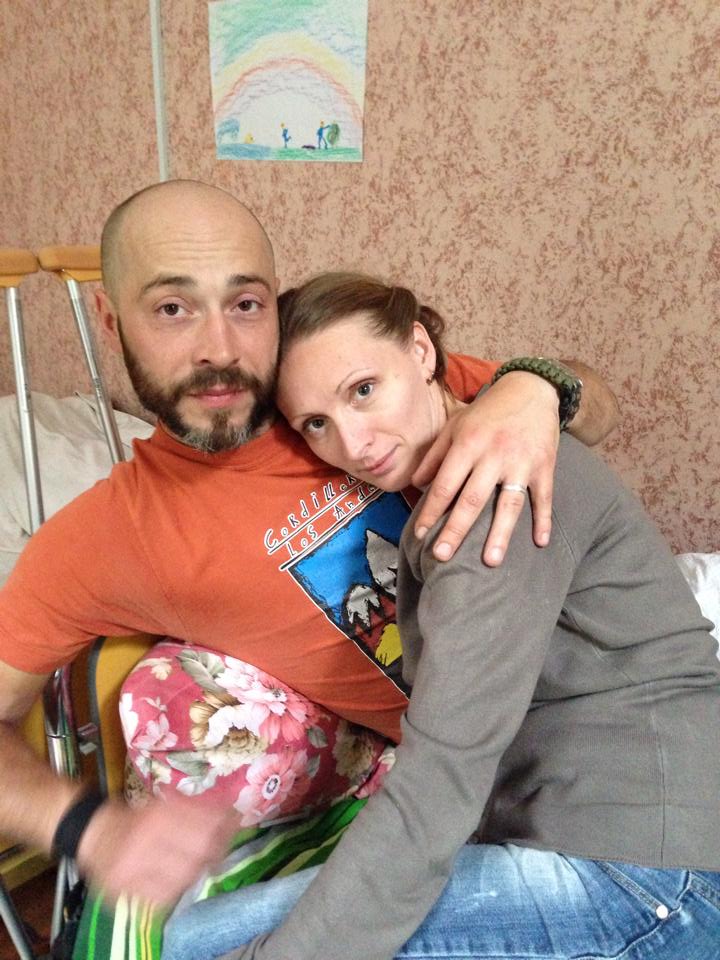
— Sergiy was on Maidan from the beginning to the end during the Revolution of Dignity. He then became a volunteer in the Anti-Terrorist Operation (ATO) and joined the “Azov” battalion. Going through Ilovaisk was probably the most terrifying period. It was hell, with no communication. Waiting is a terrible and exhausting thing, — says the journalist and military wife. — He returned from Ilovaisk, but in September, he was wounded in Mariupol. He sustained a leg injury from a bullet that passed through. Later, in February, he was wounded in the hand in Shyrokyne near Mariupol.
The conflict that had been called such since 2014 began to freeze by 2016. People in free Ukraine and the “gray” Donetsk zone adapted to the realities they faced. Snizhana’s husband retired from the military and later joined the Kyiv police. When the full-scale war started, he didn’t hesitate.
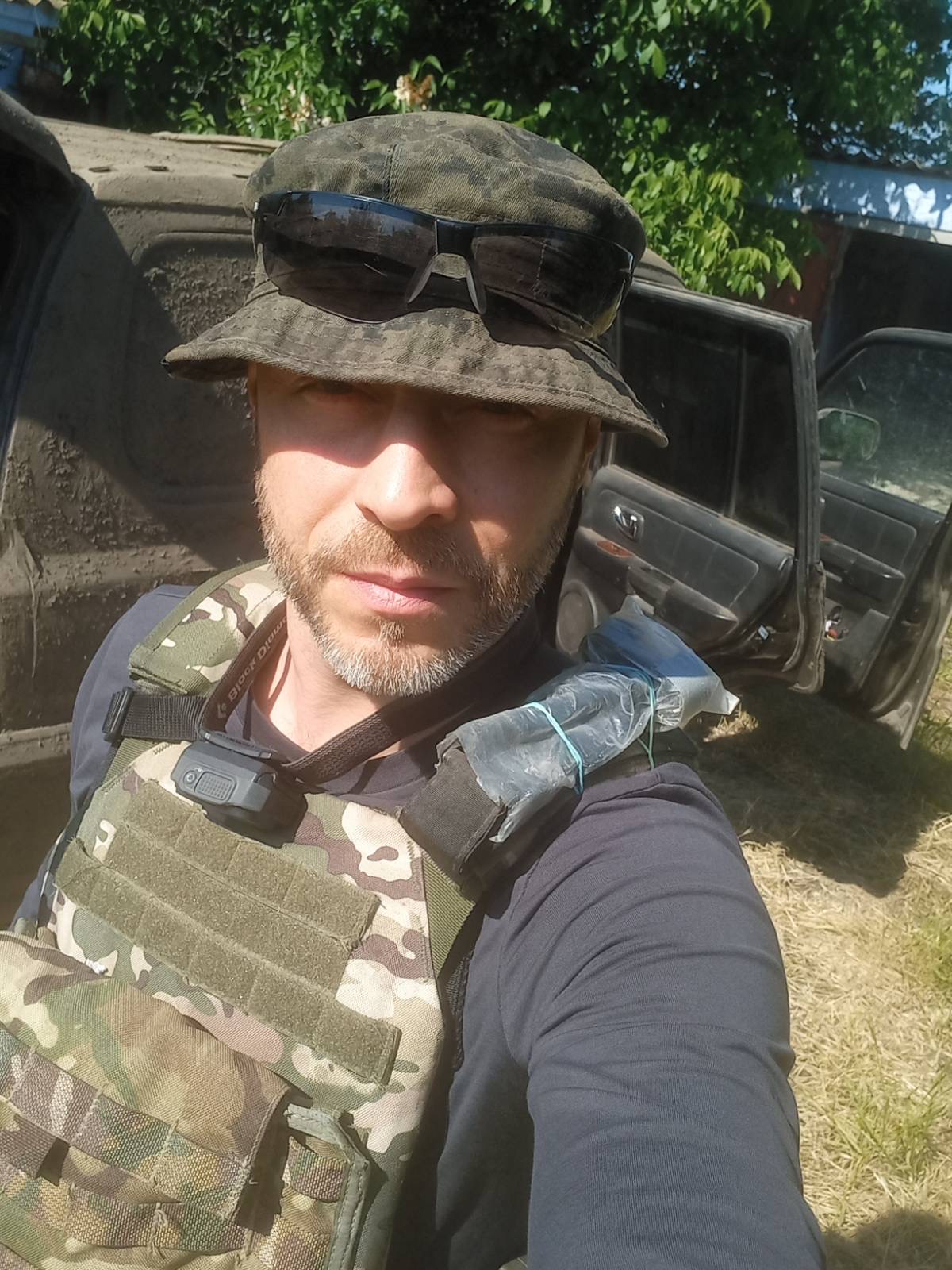
— My husband is at war. He just called and said he’s okay, but he could be killed in a second – that’s war, and he kept reminding me about it. It used to annoy me. ‘You should be prepared. It’s war, my duty, and yours is to raise the children,’— says Snizhana.
— I heard distant explosions in my sleep. And I thought, ‘Thunder? In February?’ And I went back to sleep. Another explosion – again, I thought, ‘Thunder.’ It was only with the third explosion that I woke up. My husband called. He was working in the police and was on the night shift. And immediately, like a psychologist: ‘Good morning. Have some coffee, take the dog for a walk, wake up the children. What happened? Do as I say. War has started.’ To say I was stunned would be an understatement,— recalls the journalist.
She sipped her coffee while scrolling through the news headlines, and tears kept flowing from the titles: ‘Russia Attacks Ukraine,’ ‘State of War Declared in Ukraine.’ As sirens wailed in the capital, Snizhana rushed to walk her dog. On the streets near the entrances of buildings, men gathered and passionately discussed the events that were hard to comprehend at the time. “For what?” – a question that Ukrainians would seek answers to for a long time.
Snizhana recalls the events of February 24, when she bid farewell to her husband and father with their two sons. She describes the moment she heard explosions and the feeling of confusion. Her husband called and explained that war had begun. She returned to Kyiv with her children and dog, and after the initial shock, they started planning their next steps.
— I took the dog for a walk and spoke openly to the children about everything. And we started planning what to do next. I was surprised that my husband had packed emergency bags long before the full-scale war began. I hadn’t paid attention, as everyone in our family was involved in sports, and we always had various backpacks with sports gear. Grabbing the emergency bags, we, along with the children and the dog, went to the school’s shelter,— recalls Snizhana. — I waited until late on February 24th for my husband to return from his shift so that we could set off into the unknown. We were in the shelter with no medication, documents in the bag, or belongings. We got into the car, and my husband drove us to Vinnytsia. We arrived at 5 in the morning, and by 9, he went to the military enlistment office. It was five months into the war when we embraced him again.
“There was despair and confusion back then. It felt like losing one’s bearings, and that was the worst part.”
While her husband was at war, Snizhana was his reliable support – and this isn’t just a metaphor. She assisted in everything. She learned to be his volunteer. Quickly, they had to gather everything for the front – helmets, radios, unloaders, and so on. And when negative thoughts loomed, Tor, the respectable pitbull, always came to the rescue – Snizhana calls him her “antidepressant.”
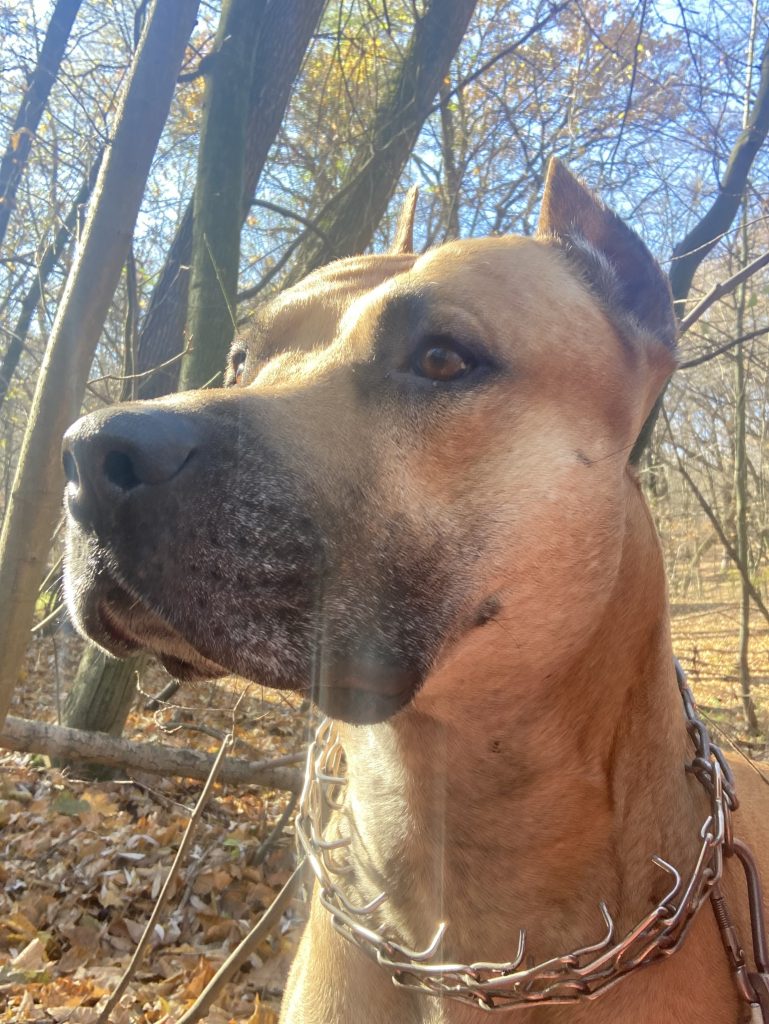
— With him, it’s good to be silent, have meaningful conversations, to play joyfully. He understands everything – you just need to look into his eyes,— says Snizhana.
By April, she returned to Kyiv with her children and the dog. The journalist returned home and work when the enemy was significantly pushed back.
— Despair and confusion prevailed back then. It was as if I had lost my bearings, and that was the worst part. But nothing is in vain – a friend appeared in my life at that time, offering to work together with the National Union of Journalists of Ukraine. The task was to develop Centers of Journalistic Solidarity, which were timely established to aid journalists who had become displaced due to the war. Colleagues who had escaped the war were a tremendous force. Mariupol, Bakhmut, Kramatorsk, Pokrovsk, Kharkiv region, Kherson – journalists from these and many other cities and towns needed assistance.
Later, the project “Journalists Matter: Life and Work Stories in Times of War” emerged. The concept of the project was developed by the National Union of Journalists of Ukraine, and it is carried out with the support of the Swedish human rights organization Civil Rights Defenders. Snizhana coordinates this project.
— Every journalist’s story is a testimony. I hope that when there’s an international court for the crimes of the Russian Federation, every fact, every photograph, every word, every video clip documented by journalist-eyewitnesses will be taken into account. The story of Natalia Dedova from Mariupol is the most dramatic and terrifying in the series of narratives. Natalia lost her husband in this senseless war. The Russians came into her home, into Mariupol, and almost in front of her, they killed her husband. It’s a crime, and it’s the murder of innocent civilians. The whole civilized world needs to know about such cases. Why should they know? So that evil can finally be stopped and punished,— the journalist believes.
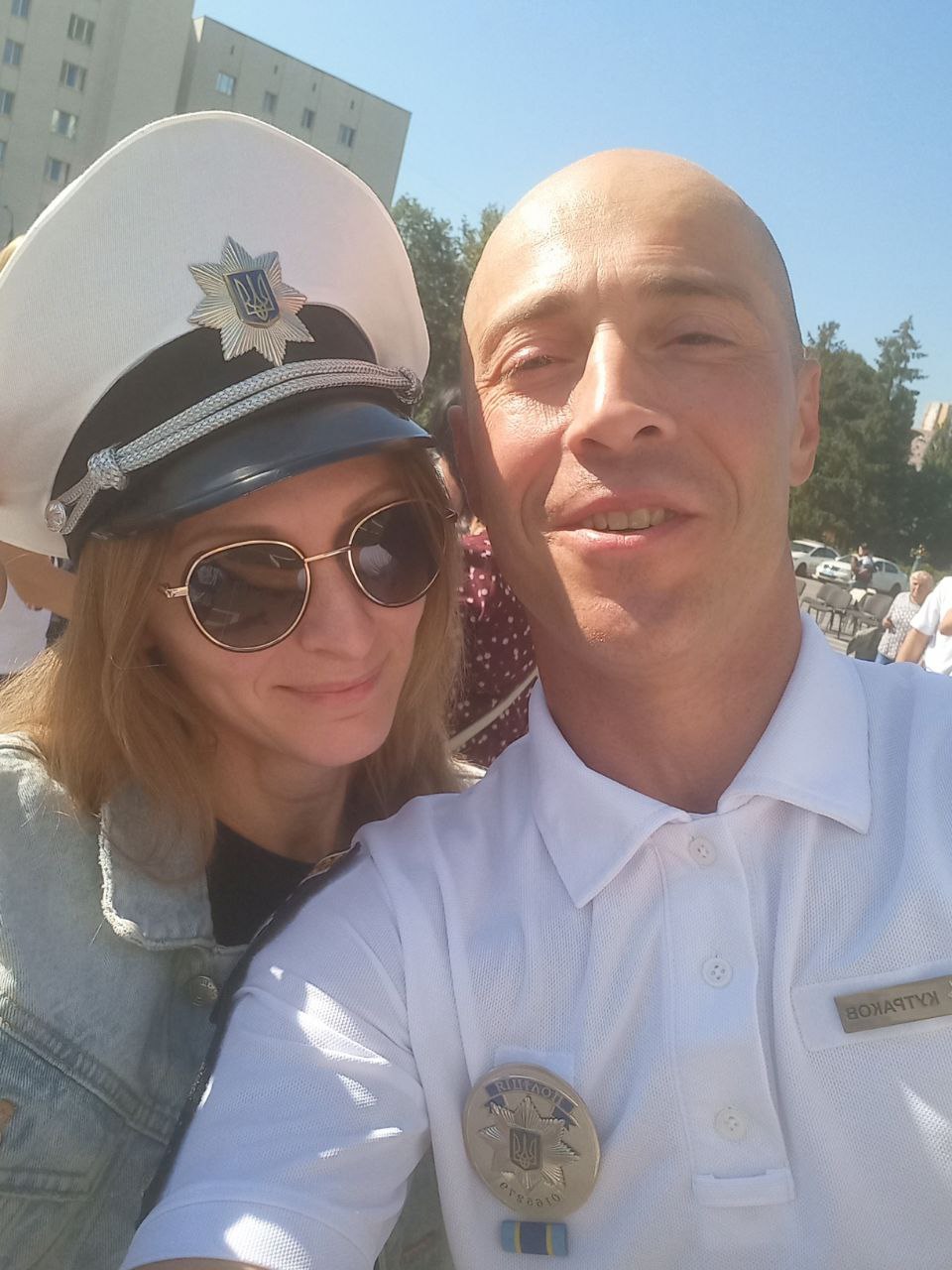
“The main thing is that the bullet shook us a little, but it didn’t knock us down.”
In December 2022, Snizhana received news from the front about her husband’s serious injury near Bakhmut. However, fate was again favorable to the journalist couple – despite heavy blood loss and severe injuries, doctors managed to save Sergiy. Ahead of them is a repeat surgery and a course of rehabilitation, but this path is not as challenging considering what all of Ukraine is currently enduring.
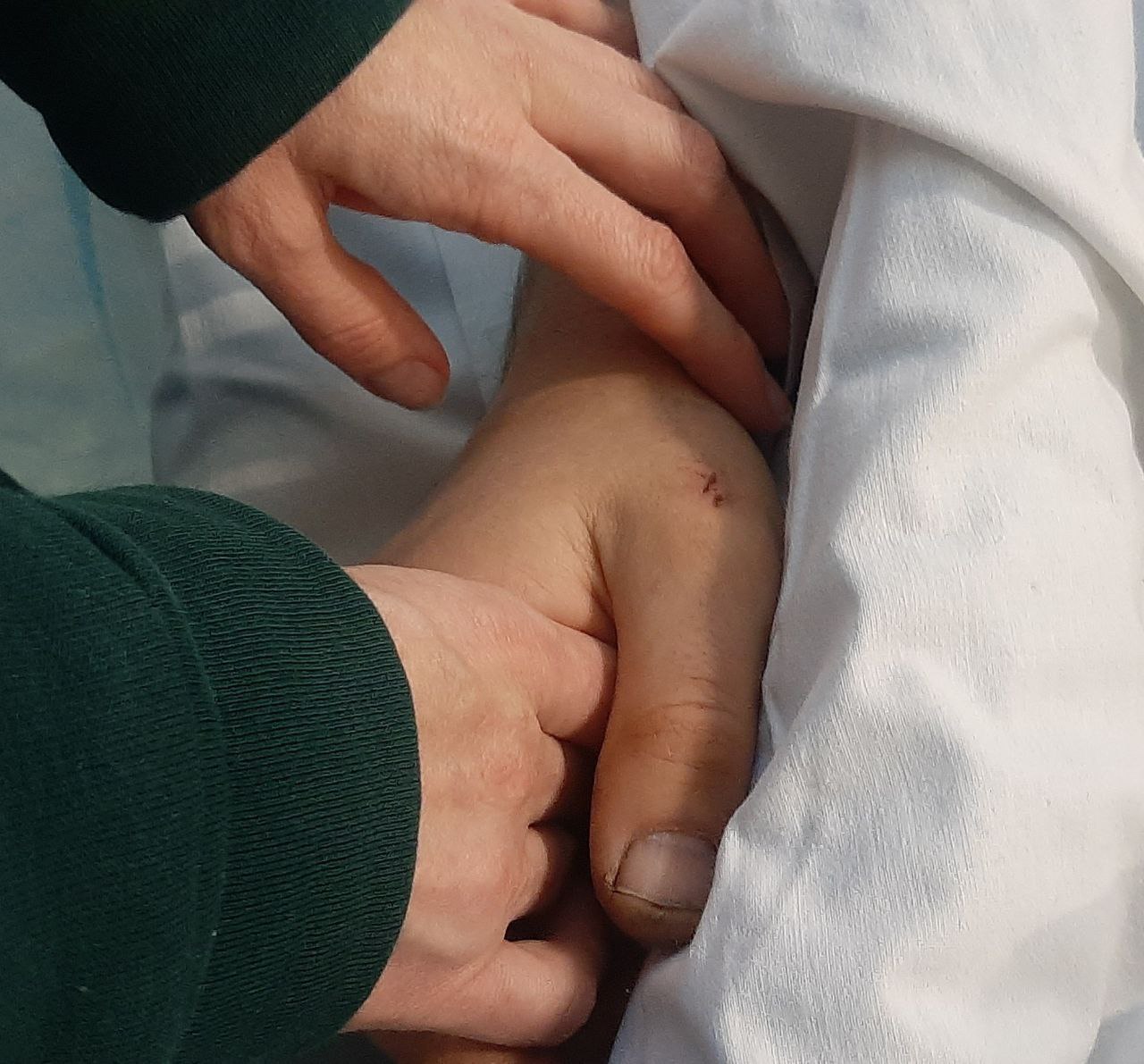
— The main thing is that the bullet shook us a little, but it didn’t knock us down,— the journalist believes.
And if Snizhana feels restless, she has a depression pill – her dog Tor. With him by her side, she feels strong and self-assured. With a woman like this, a man can spend some time in the infirmary, regain strength, and continue to rebuild their homeland. So that eventually, they can travel to the liberated Ukrainian Donetsk.
This series, titled Executed Free Speech, is created as part of a project Drawing Ukrainian And International Audience’s Attention To Serious Violations Of Human Rights And Crimes Against Journalists And Mass Media By The Russian Federation, which is performed by the National Union of Journalists of Ukraine, with support from the Swedish non-profit organization Civil Rights Defenders.
JOURNALISTS ARE IMPORTANT. Stories of Life and Work in Conditions of War is a cycle of materials prepared by the team of the NUJU with the support of the Swedish human rights organization Civil Rights Defenders.
#CRD

 THE NATIONAL UNION OF
JOURNALISTS OF UKRAINE
THE NATIONAL UNION OF
JOURNALISTS OF UKRAINE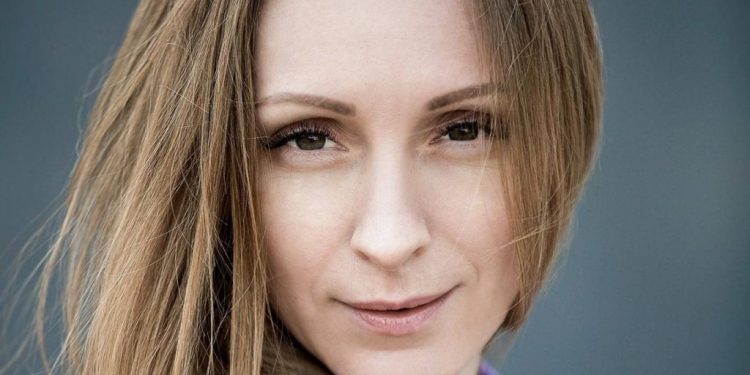
















Discussion about this post